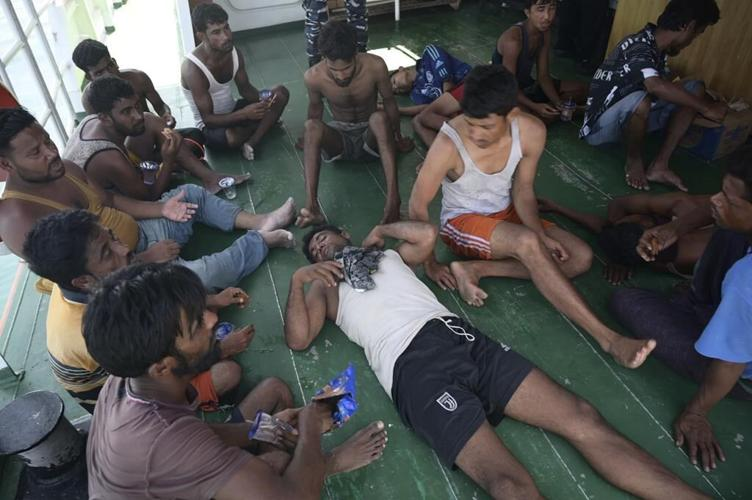
AP Photo/Reza Saifullah.
Indonesia's Aceh Province was the scene of a harrowing rescue effort, as local fishermen came to the aid of Rohingya refugees whose boat capsized off the coast. The incident has once again drawn attention to the dangerous voyages undertaken by Rohingya Muslims from Myanmar, seeking refuge and a better life elsewhere.
The refugees' ordeal unfolded on Thursday when their boat overturned, leaving many stranded at sea. While the exact number of casualties remains unknown, several survivors were pulled to safety by the quick actions of Acehnese fishermen.
For the Rohingya, escaping their dire conditions often entails embarking on treacherous sea journeys, a choice fraught with peril. Despite the risks, many see it as their only hope for a brighter future. However, the journey is rife with danger, with the UN estimating that as many as one in eight individuals perish or go missing during the attempt.
The plight of the Rohingya stems from long-standing discrimination and persecution in Myanmar, where they have been marginalized by the Buddhist majority for decades. Denied citizenship and basic rights, they have faced violence and oppression, culminating in a mass exodus in 2017 when Myanmar's military launched a brutal campaign in response to Rohingya insurgent attacks.
This military crackdown led to the displacement of hundreds of thousands of Rohingya, who sought refuge in neighboring Bangladesh. Over a million Rohingya now reside in overcrowded refugee camps in Cox's Bazar, where they endure dire living conditions and lack access to basic necessities.
While some Rohingya attempt to flee by sea in search of a better life, this journey is fraught with peril. Human traffickers exploit their desperation, charging exorbitant fees for passage on unsafe vessels. Many perish at sea due to starvation, dehydration, or accidents.
For those who survive the treacherous journey, the destination countries of Thailand, Malaysia, and Indonesia offer mixed prospects. While Malaysia has been relatively more welcoming to Rohingya refugees, allowing them to disembark and seek asylum, Thailand often turns them away or detains them upon arrival.
In Indonesia, Rohingya refugees are provided with temporary shelter and assistance, but there have been instances of local backlash against their presence, highlighting the complexities of the situation.
Amidst these challenges, the UN continues to seek funding to support Rohingya refugees and their host communities in Bangladesh. A recent appeal called for $852.4 million to provide essential services and support to alleviate their plight.
The rescue off the coast of Aceh serves as a stark reminder of the ongoing humanitarian crisis facing the Rohingya and underscores the urgent need for international action to address their plight and provide assistance to those in need.















